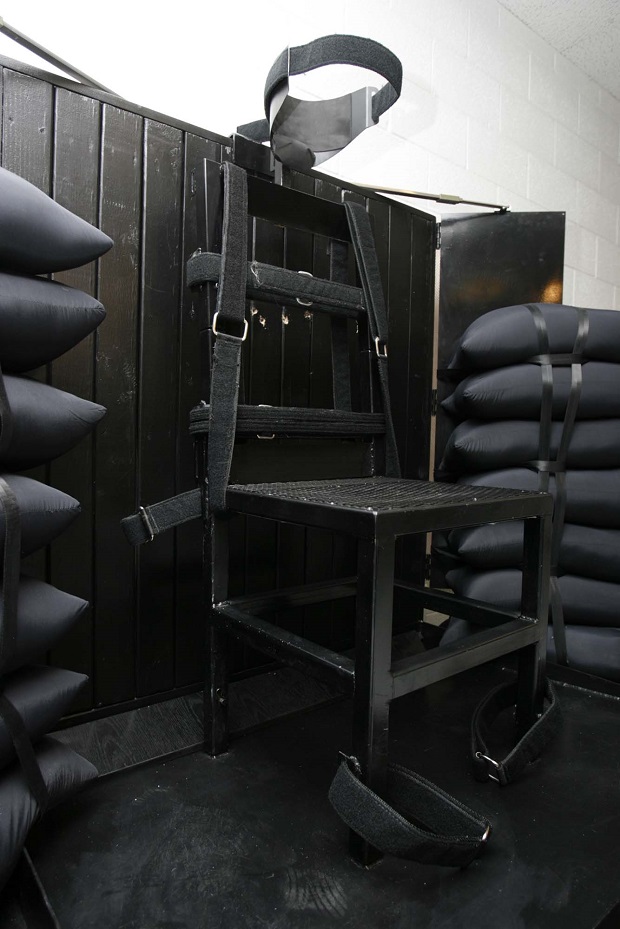US pharmacists’ group discourages providing execution drugs

In this June 18, 2010, file photo, the execution chamber at the Utah State Prison is seen after Ronnie Lee Gardner was executed by firing squad, in Draper, Utah. Four bullet holes are visible in the wood panel behind the chair. Gardner was convicted of aggravated murder, a capital felony, in 1985. Lawmakers have passed a bill that would make Utah the only state to allow firing squads for carrying out a death penalty if there is a shortage of execution drugs. AP
SAN DIEGO, United States — The American Pharmacists Association on Monday adopted a policy that discourages its members from providing death-penalty drugs.
The new guidelines could make it tough for death penalty states, like Texas, that have been looking at made-to-order execution drugs from compounding pharmacies as the answer to a nationwide shortage of execution drugs.
The association’s governing body approved the policy at a meeting in San Diego.
Not binding
The group lacks the legal authority to bar compounding pharmacies from selling execution drugs. But its policies set ethical standards followed by pharmacists, just as the American Medical Association does for doctors.
Article continues after this advertisementPrison departments have had to buy made-to-order execution drugs from compounding pharmacies in recent years because the pharmaceutical companies they used to buy their drugs from now refuse to sell them for use in lethal injections after coming under pressure from death penalty opponents.
Article continues after this advertisementBut now the compounded version is also difficult to come by, with most pharmacists reluctant to expose themselves to possible harassment by death-penalty opponents.
Execution delayed
Texas’ prison agency scrambled this month to find a supplier to replenish its inventory, then found a supply from a compounded pharmacy it won’t identify. Also this month, an execution in Georgia was put off when prison authorities questioned the appearance of the compounded pentobarbital they planned to use.
After a troubling use of a two-drug method last year, Ohio said it will use compounded versions of either pentobarbital or sodium thiopental in the future, though it doesn’t have supplies of either drug and hasn’t said how it will obtain them. All executions scheduled this year were pushed to 2016 to give the state more time to find the drugs.
Alternative methods
Others states are turning to alternative methods.
Tennessee has approved the use of the electric chair if lethal-injection drugs aren’t available, while Utah has reinstated the firing squad as a backup method if it can’t obtain the drugs. Oklahoma is considering legislation that would make it the first state to allow the use of nitrogen gas as an execution method.